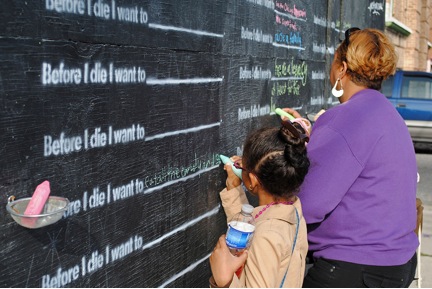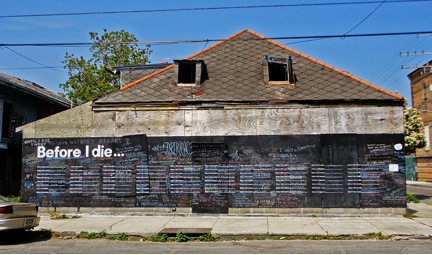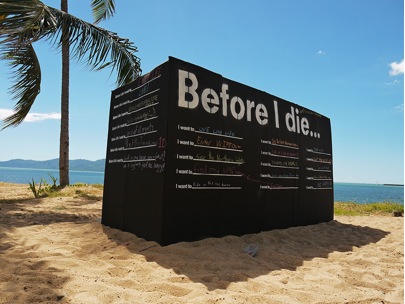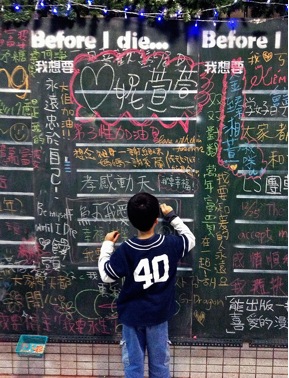
The Before I Die project was a way for me to make sense of the aftermath. I avoided thinking about death for most of my life, in part because I was taught to avoid it. If you bring up death out of the blue, people will often say "don't go there" or "it's too sad" or "you don't need to think about it until you're older." When Joan died, I couldn't avoid it any longer. I went through a period of grief and depression, then gratitude for the time we had together. I thought about death a lot and found a comfort and clarity I didn't expect. Beyond the tragic truth lies a bright calm that reminds me of my place in the world. The moment becomes more tactile. Things that stress me out are reduced to their small and rightful place. Things that matter to me get big and crisp again. Contemplating death, as Stoics and other philosophers encourage, is a powerful tool to re-appreciate the present and remember what makes your life meaningful to you.
We're all trying to make sense of our lives and there's great comfort in knowing you're not alone. Everyone you're standing with in line and everyone you're sitting by in a cafe and everyone you walk past on the street is going through challenges in their life. Yet it's easy to forget this because we rarely venture beyond small talk with strangers. There are a lot of barriers to opening up.
I started making interactive public art projects on abandoned buildings as a way for my neighbors and I to easily share our memories and hopes for these places. Then they became a canvas to ask more personal questions as my priorities changed. Am I the only one who feels like I'm barely keeping it together? The city historian Lewis Mumford once wrote that the origins of society were not just for physical survival but for "a more valuable and meaningful kind of life." Some of the earliest gathering places were graves and sacred groves. We gathered so we could grieve together and worship together and console one another and be alone together. Our public spaces are our shared spaces and at their greatest they can nourish our well-being and help us make sense of our communities and ourselves. Our public spaces are as profound as we allow them to be.Since the first Before I Die wall in 2011, over 250 walls have been created in over 15 languages and over 45 countries. Passionate people are building new walls each week and it's been one of the greatest experiences of my life to see this little experiment in New Orleans grow into a global project. I'm excited to honor many of these walls in a book about the project that will come out this November.The Before I Die walls are an honest mess of the longing, pain, joy, insecurity, gratitude, fear, and wonder you find in every community. Seeing other people's feelings have encouraged me to explore my own. I've written many things on the wall: to hole up and read books for weeks, to enjoy more cities with the people I love, to write a bedtime story, to revive a ghost town. It took months before I even began to act on some of these things, but once I wrote them down, those ambient urges took root and became firmer in my mind. I'm a distracted, forgetful person with a short attention span. I need constant reminders of the actions that will really nourish me. And I'm grateful to all my neighbors who have helped stir my mind and step back, pause, be quiet, and reflect.



